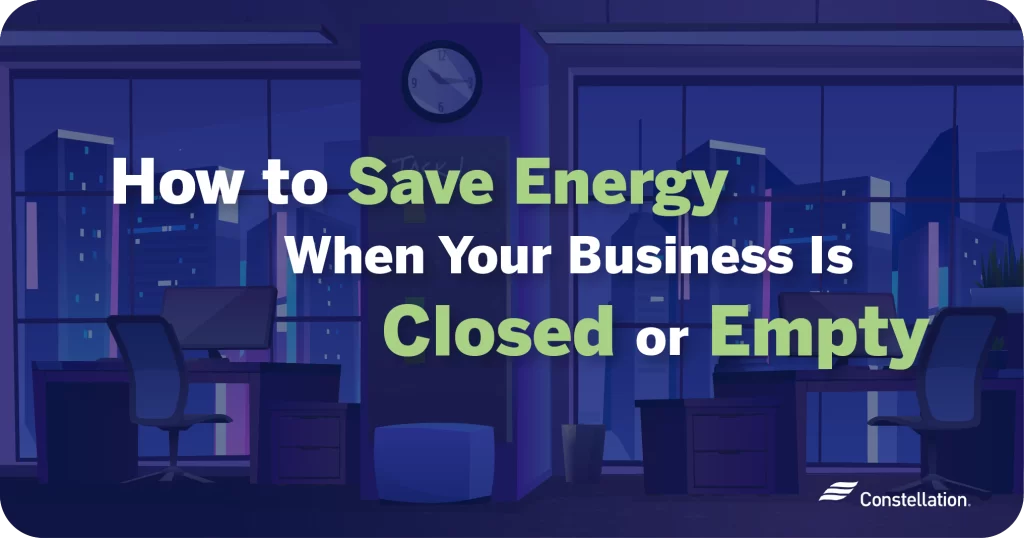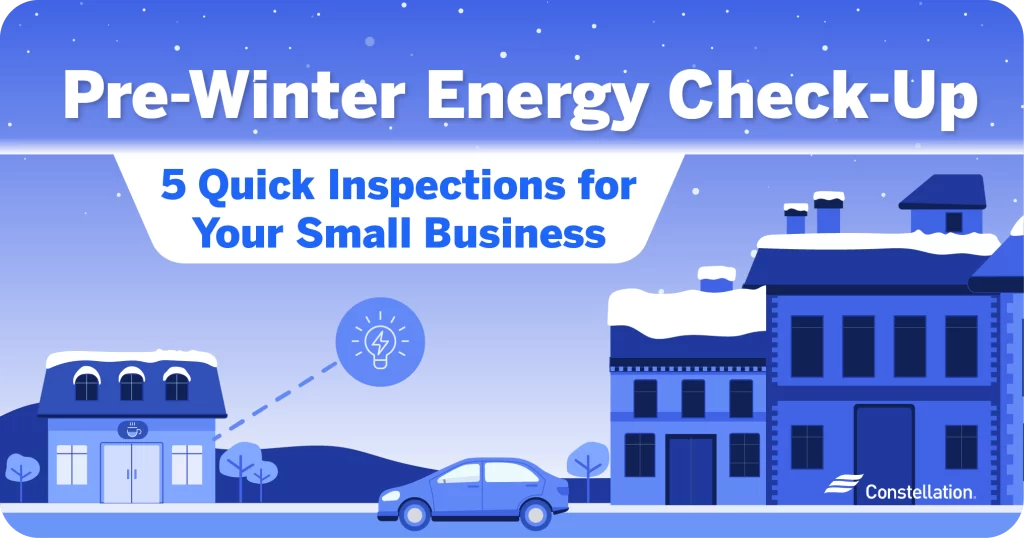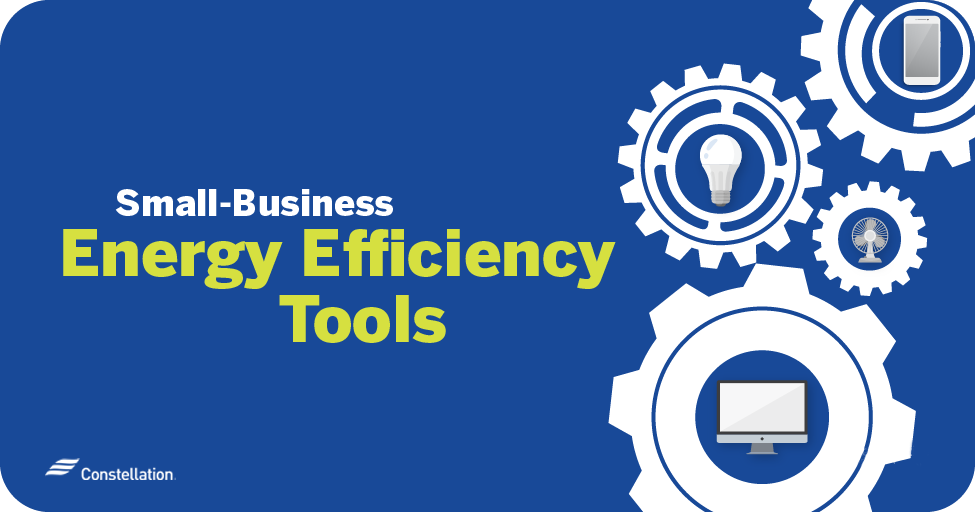
- Category:
Small Business Energy Savings -
Last updated:
February 22, 2022
Small-Business Energy Efficiency Tools
As a small-business owner, it’s easy to get caught up in all the day-to-day tasks that keep your company running. It may be hard for you to find a chance to stop and think about your energy usage, or perhaps you feel that there’s too much strategizing and research to be done before you can start to see energy savings. But that doesn’t have to be the case.
Here’s a list of tools that can help you monitor, assess and improve your small business’s energy efficiency while also limiting your energy expenses over time.
Energy efficiency tracking tools
As they say, you can’t fix what you can’t measure. That’s why the first step in improving your small business’s energy efficiency should be tracking your overall usage. You can then take it a step further and identify the devices and appliances that are contributing most to your energy consumption. It’s important to have a detailed understanding of how your business’s energy is used, as it can help you create a road map to increased efficiency and savings.
Calculate the total amount of energy you’re using
Even a small business can have a lot of energy-draining equipment. Here are a couple of tools and resources that can help you determine the amount of energy your small business is using:
- Use this formula for calculating your small-business energy usage.
- Figure out the estimated baseline energy usage for your industry.
Determine what’s using the most energy
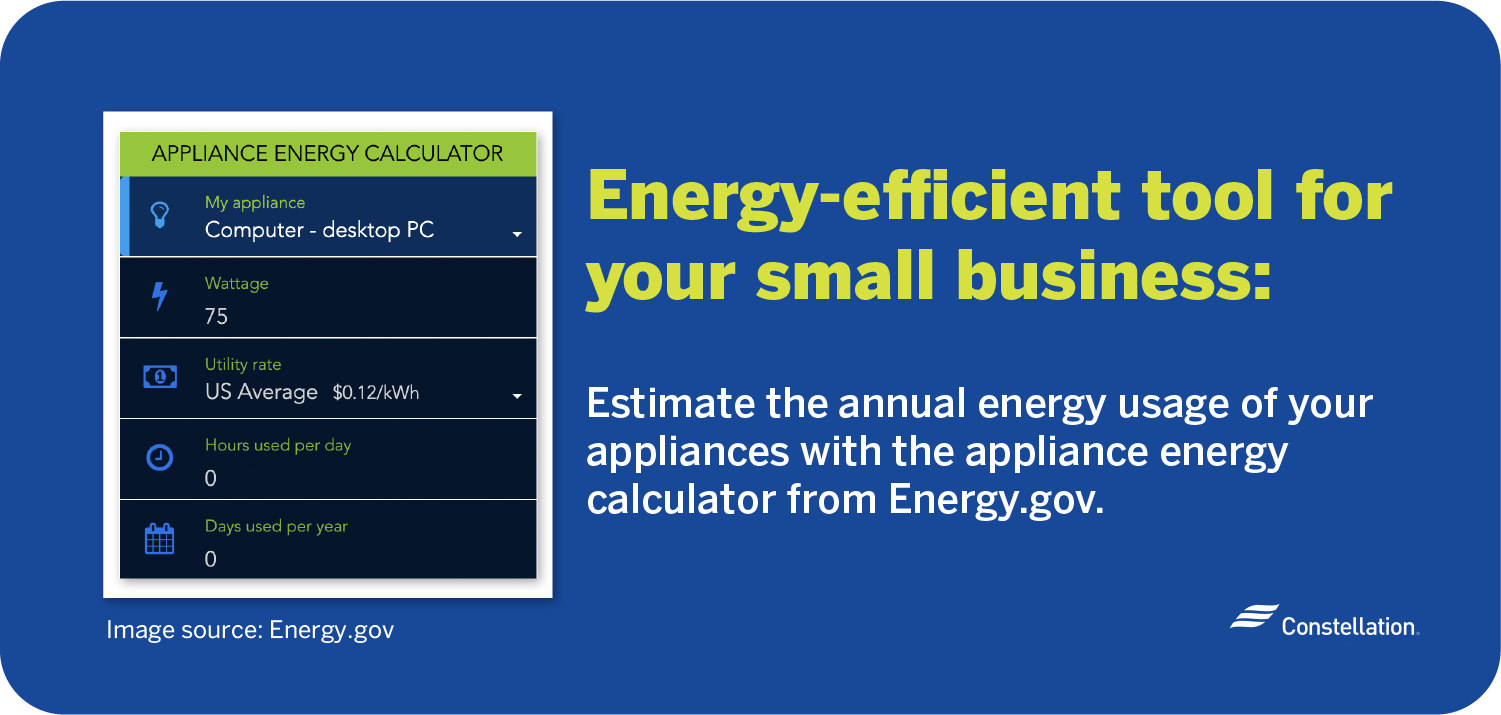
With all the equipment it takes to run a business, it can be tough trying to figure out where your energy is going. The following tools and resources can help you pinpoint what’s consuming the most energy in your small business:
- See what the biggest energy expenses for small businesses usually are.
- Estimate the annual energy usage of your appliances.
- Track your appliance’s energy usage with a small-business energy-monitoring system.
Energy efficiency assessment tools
Once you’ve determined the amount of energy your small business uses and what’s contributing most to your consumption, you can start taking a closer look at the data. Comparing your energy usage to similar businesses in your industry, for instance, can help in assessing your energy efficiency, as well as inform your decisions about what energy-efficient upgrades to make.
See how your energy usage compares to the average
No two businesses are the same, meaning they’re all likely to use a unique amount of energy. Even businesses within the same industry will use different amounts of energy based on where they’re located and their energy consumption habits. However, it’s still valuable to do some research into how your small business’s energy usage compares to the national average. This will provide insights that can help you determine how much you should be investing in energy efficiency upgrades.
Find out how much energy efficiency upgrades can save you
Before implementing energy efficiency upgrades, it’s smart to determine how much you stand to save. Energy and costs savings calculators from Energy.gov can be used to estimate your total savings on a number of different energy-efficient appliances, such as heat pumps, ice machines and faucets. Ultimately, though, the amount of energy and money you’re able to save will depend on the specific piece or pieces of equipment you replace and the units you replace them with, as well as your energy consumption habits.
Tools and resources to help your small business save
After tracking and assessing your small business’s energy efficiency, you should have a better idea of how you’re using energy and where you can improve. If you’re unsure how to start becoming more energy-efficient, there are various tools to help you save energy in your small business.
Find ways to consume less energy
Whether it’s a big investment into energy-efficient upgrades or a few small tweaks to your business’s energy usage habits, there are many ways for you to curb your consumption.
- Follow these business energy savings tips, such as powering down equipment when not in use and reducing your usage during times of peak demand, if your energy contract is tied to time of use.
- Use these small-business energy cost-cutting ideas to limit energy use and save money each month.
- Refer to these energy efficiency solutions to help keep your energy efficiency strategy manageable.
- Learn more about what energy efficiency is and why it’s important.
Upgrade your business’s equipment and appliances
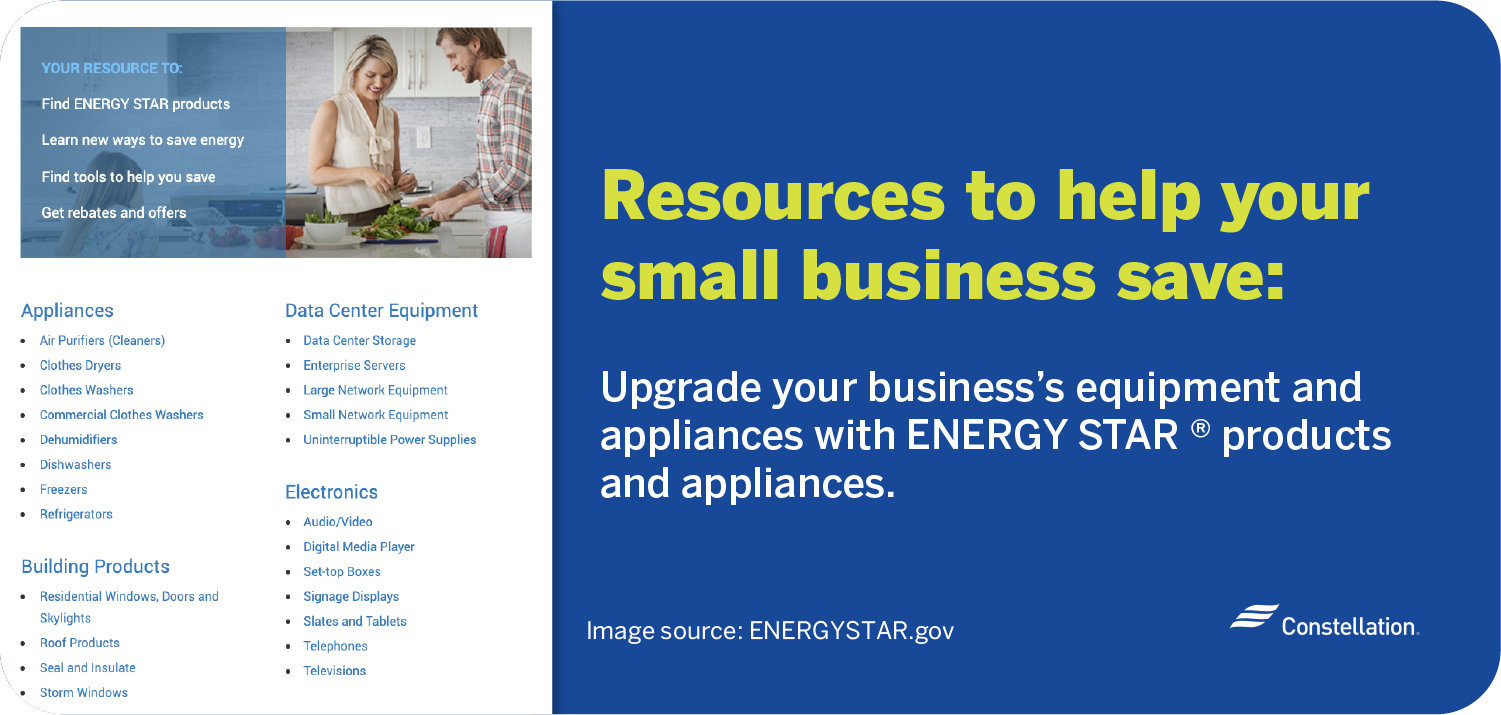
Most of the equipment and appliances in your business use energy, so it’s wise to purchase energy-efficient models whenever possible. The more pieces of equipment you’re able to upgrade, the more money and energy you’ll be able to save. Here are some tools and resources to get you started:
- Invest in ENERGY STAR ® products and appliances to limit your energy consumption.
- Upgrade to energy-efficient office equipment, like computers and copiers.
- Use an energy efficiency financing program, such as a small-business loan or renewable energy grant, to fund your improvement.
Utilize an energy management system
An energy management system can be an effective tool to help you save energy in your small business. They consist of three main parts — sensors, controllers and linked devices — which work together to keep your energy usage down. From HVAC systems to lighting fixtures, an energy management system can provide a wealth of useful, actionable data on your equipment’s energy usage.
Look for tax credits, rebates and other opportunities to save
It’s possible that some of the energy efficiency upgrades you make for your business could qualify you for tax credits or other savings opportunities. For example, the federal government offers tax credits and other incentives for energy efficiency. There are also ways to save on a state level, though the policies and incentives available for your business will vary based on where you live.
The perks of using energy efficiency tools for your business
There’s a lot to gain by engaging in energy conservation practices and running a more eco-friendly business. Not only does consuming less energy benefit the environment, but it also helps to reduce your monthly expenses and keep your business’s bottom line in focus. All it takes is a few small investments and some adjustments to the way your business uses energy for your company to see the cost-saving benefits that energy efficiency can offer.
Here are some other small-business resources that offer industry-specific insight into energy savings, such as how you can reduce your restaurant expenses with energy efficiency.

